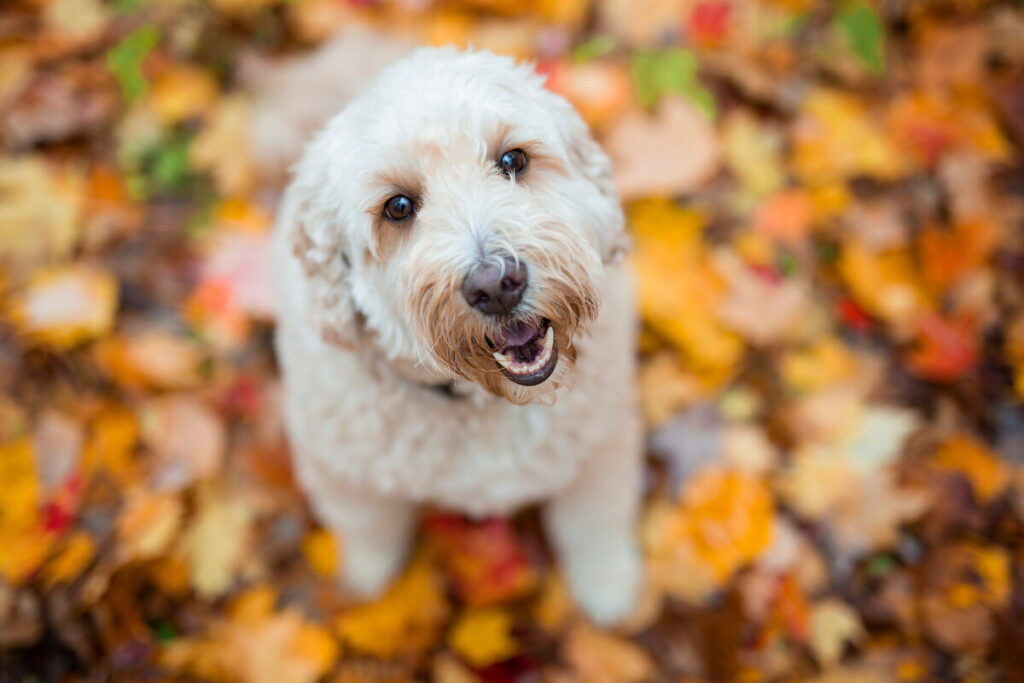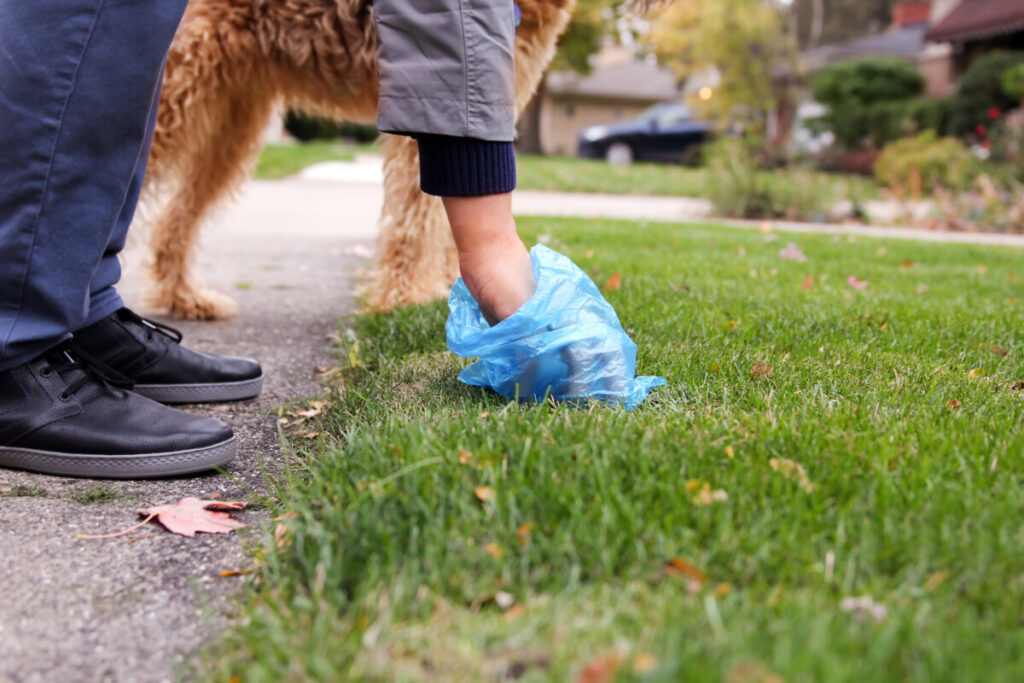Do Goldendoodles Eat Their Poop? (Do This!)
Many new dog owners are shocked and disgusted to notice their puppy eating its own poop, as well as the poop of other animals. If you are contemplating adopting a Goldendoodle, you will want to know what you can expect from your new furry friend.
Goldendoodles will eat their poop. The habit of eating feces, no matter the source, is normal behavior for dogs called coprophagia. This is commonly seen in most dog breeds, and especially often in young puppies. Though disgusting, it is not usually a cause for concern.
Most dog owners are rightfully confused and horrified by this habit. If you are wondering why this happens or how to stop it, keep reading to put your mind at ease.
Why Do Dogs Eat Poop?
There are two main reasons why your Goldendoodle would eat its poop. Usually, it is a behavioral problem, but can sometimes be an indicator of a more serious medical issue.
If you first notice coprophagia in the puppy yearsPuppy Checklist: Must-Haves To Bring Home Your New Goldendoodle Puppy, it is most likely a harmless behavior they unfortunately developed. Puppies are theorized to develop this habit because of their innate curiosity. Puppies love to investigate and play with any interesting materials, including their own poop.
Solid or even frozen poop is most interesting to puppies compared to softer stools, which is where the term ‘poopsicle’ comes from. Owners may accidentally reinforce the behavior by calling attention to it. Puppies love attention, and so they may repeat the behavior to get another reaction.
Looking at the behavior of mother dogs, this habit may also be observation-based. Adult dogs, including Goldendoodles, will take responsibility for inspecting and cleaning a new puppy’s poop.
The puppy observes this and then may try to copy their parent. If you are caring for a mother dog, do not be concerned if she is eating the poop of her puppies. Eating their poop is their way of trying to keep their territory clean.
If you first notice coprophagia in an adult Goldendoodle as a returned or new habit, you should be conscious of the possible medical implications. Any medical cause would be rooted in vitamin consumption or absorption.

Dogs may eat their poop because their body is recognizing a deficiency and is attempting to remedy it by consuming the feces. Inspecting your dog’s poop frequency and consistency can provide a lot of insight. Poorly digested food will show evidence in the stool as a particularly soft consistency or even show up in undigested pieces. A veterinarian will be able to help you evaluate what is normal and what is concerning.
The issue may be as simple as underfeeding or an insufficiently nutritious food formula. However, if your Goldendoodle is ingesting the right amount of nutrients but is not properly absorbing them, this is a sign of a more serious medical condition. This may include Cushing’s disease, thyroid disease, or diabetes. Make sure you bring up any poop-eating habits with your veterinarian.
If your dog is repeatedly eating the stool of a different dog, that other dog should be evaluated for malabsorption. Your dog might develop a taste for a certain dog’s feces if their poop contains high levels of nutrients or undigested food.
If your Goldendoodle is interested in the poop of other animals, this is a very natural instinct. The odor that humans find so appalling is very interesting to a dog. Dogs will investigate and even eat other animals’ poop as a way of exploring their environment or as a form of scavenging. A Goldendoodle that likes to steal food and garbage will also likely be interested in eating other animal feces.
Is It Harmful for Dogs to Eat Poop?
A Goldendoodle eating its own poop is completely harmless. It is also likely harmless for them to eat the poop of other dogs, as long as you know about that dog’s health. The only time when eating poop becomes harmful is if your dog consumes the poop of another animal, and that animal has some sort of disease or parasites.
Viruses and toxins can be passed on to other animals through consuming feces. It is important to stop any poop-eating habits in your Goldendoodle, especially if they are interested in the poop of other animals. If your dog seems to get randomly sick all the time, pay special attention to what they are sniffing when you go for walks and hikes.
How Can I Stop My Dog’s Coprophagia?
The best method for stopping coprophagia will depend on its cause. If poop-eating is just a behavioral issue, it should stop by 9 months or a year old with proper nutrition and training. Cleaning up your Goldendoodle’s poop immediately after they are finished is your first line of defense.

It can be helpful to train your dog to return and sit immediately after they finish pooping. Wait for your dog to poop, then try calling your dog to come, then sit and reward with a treat. Repeat this pattern each time they poop to encourage separation from the poop for a reward.
Any sniffing or interest in the poop before they return to you should be disciplined with a firm command, or whatever discipline works best for you and your dog. Make sure to clean up the poop after the reward, so there is no opportunity for your dog to return. This behavior should eventually become a new habit as you train your dog, and as it matures.
Some owners see success in adding additional nutrients into their dog’s diet to prevent interest in their stool. Most commonly, dogs are lacking in vitamin B. Choosing a high-quality, balanced dog food should help ensure proper nutrient consumption, but you can also choose to add a vitamin supplement to your Goldendoodle’s diet.
You can also try a supplement that will create taste deterrents. These ‘Chew No Poo Bites’ from Amazon freshen breath, improve gut health, and also have capsicum extract that will give your dog’s stool an unpleasant taste.
Of course, no supplement can replace proper veterinary care. Make sure you eliminate any possibility of serious health complications before turning to home remedies.